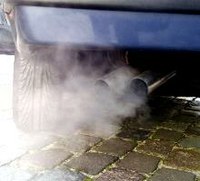
(BRUSSELS) – Evidence from the first draft report from the European Parliament’s committee into dieselgate, published Monday, reports shortcomings in Member State enforcement of EU car emissions legislation.
The draft text is a result of 10 months’ intensive work to reconstruct the events and collect evidence, in particular on the role of the EU Commission and Member States before and after the car emission test cheating scandal.
It focuses on discrepancies between the NOx emissions of diesel cars in the laboratory and on the road and on the process of adapting emissions tests to reflect real-world conditions.
The report presents evidence on the possible use of prohibited “defeat” devices and identifies gaps in the EU car type-approval system and shortcomings in the enforcement of the EU emissions legislation in the member states.
The findings are based on a factual section drafted by Parliament’s co-rapporteurs in cooperation with representatives of other political groups. The result is as far as possible a complete picture of the series of events which culminated in VW’s admission to the US authorities in September 2015 that it had installed a defeat device on some models.
The committee had achieved a balanced factual part of the report, said co-rapporteur Jens Gieseke MEP: “Now it is vital to continue the good co-operation between all groups on the conclusions and recommendations, which should equally be based on facts and not on assumptions or ideological beliefs. We need to ensure that the legal system on emission testing is improved to prevent fraud in future,” he said.
Despite reports, Mr Gieseke said the hearing showed that “diesel still is a viable technology that contributes to reducing the CO2 emissions”.
The finger of blame for dieselgate has been clearly pointed at national governments, as well as the European Commission, who, the panel says, failed to act on their legal and administrative responsibilities. “The legal ban on defeat devices is clear, said the other co-rapporteur Gerben-Jan Gerbrandy MEP: “the problems uncovered by our investigation relate to undue delays in decision-making, negligence and maladministration”
The panel plans four more hearings with ministers in charge of type approval in Italy and Slovakia, as well as with representatives of two additional car manufacturers, Audi and Opel.
The draft report is to be put to committee vote on 28 February and a final vote in a full Parliament plenary vote in April.


